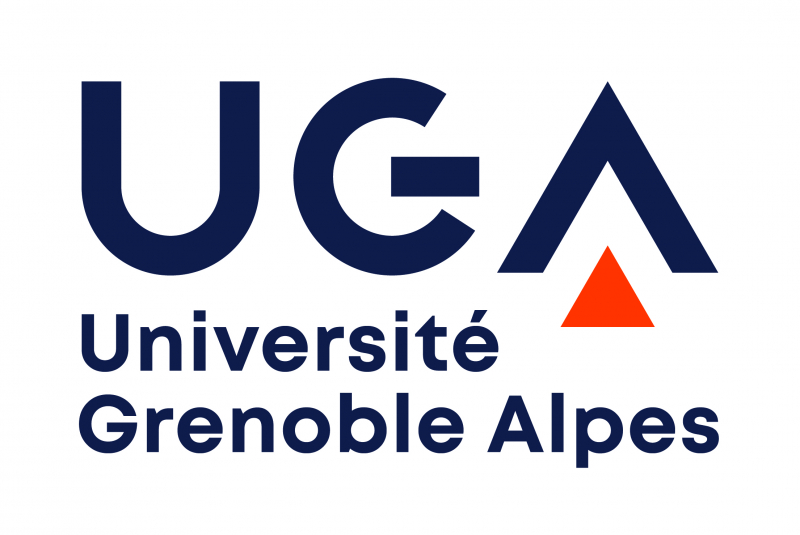EBCCSP 2015 - First IEEE International Conference on Event-based Control, Communication, and Signal Processing
The last decade has witness an upsurge in the scientific interest to harness the benefits of the event-based paradigm applied to a wide spectrum of engineering disciplines including control, communication, signal processing, and electronic instrumentation. The event-based systems, in which the system activities are triggered by events instead of progression of time, exhibit certain advantages over other approaches, such as time-triggered, for instance, in the resource-constrained applications. Event-triggered architectures support activity-dependent allocation and efficient utilization of available resources like communication bandwidth, computational resources, and energy consumption. Specific application areas include energy-efficient control over wireless networks, ultra-low power clockless circuits and signal processing chains, bio-inspired computing architectures, or frame-free event-driven vision systems, to mention a few.
The aim of the conference is to provide a platform for the research communities that work in diverse application areas to exchange new research results and ideas to explore synergies and foster scientific advancement of the event-based paradigm.
CALL FOR PAPERS:
Submission Deadline: January 15, 2015
Web site: http://www.ebccsp2015.org
KEYNOTES:
Panos Antsaklis, University of Notre Dame, USA
Karl Henrik Johansson, KTH Royal Institute of Technology, Sweden
Yannis Tsividis, Columbia University, USA
PLENARY PRESENTATIONS:
Maurice Heemels, Eindhoven University of Technology, The Netherlands
Jan Lunze, Ruhr-Universität Bochum, Germany
SOLICITED PAPERS:
Research papers reporting on new developments in technological sciences.
Industry and development papers reporting on actual developments of technology, products, systems and solutions.
Tutorial and survey papers. Work-in-progress papers.
In addition, EBCCSP 2015 solicits special session proposals to stimulate in-depth discussions in special areas relevant to the conference theme. Please consult the conference web page for more details.
TOPICS:
EVENT-BASED CONTROL & SYSTEMS
Event-based and self-triggered control, Continuous and periodic event-triggered control, State-feedback and output-based event- triggered control, Event-based PI and PID controllers, Event-based control over networks, Decentralized event-triggered control, Distributed event-triggered control, Distributed event-triggered control for multi-agent systems , Event-based state estimation, Control systems with Lebesgue sampling , Lyapunov sampling for event-driven controllers, Event-based intermittent control, Generalized predictive event-triggered control, Discrete-event systems
EVENT-BASED COMMUNICATION, COMPUTING & SYSTEMS
Event-based and time-triggered communication architectures, Event-based protocols, Flexible time-triggered protocols and archi- tectures, Event-based fieldbuses, Event-based real-time systems, Controller Area Networks (CAN), Complex events detection, Event-based wireless sensor and control systems, Event-triggered and self-triggered real-time task scheduling, Performance evaluation of event-based communication systems, Event-based and adaptive sampling, Cost-aware sampling, Adaptive sam- pling and sleep mode, Intelligent sampling, Design of event-based sampling criteria, Event-based spatial and spatiotemporal sampling, Intelligent sensors, Send-on-delta data reporting strategy, Event-based communication systems modeling and design, Event-based control applications
EVENT-BASED SIGNAL PROCESSING & SYSTEMS
Event-driven signal processing chain, Event-driven signal processing theory, Event-driven analog-to-digital conversion tech- niques, Adaptive-rate analog-to-digital conversion, Level-crossing analog-to-digital converters, Event-driven and adaptive filters, Clockless and self-timed circuits and architectures, Spectral analysis of event-triggered , Asynchronous Delta and Sigma-Delta modulations, Asynchronous Delta and Sigma-Delta modulators implementations, Event-based signal reconstruction methods, Event-based signal processing applications, Asynchronous design of circuits and systems, Intelligent sensors, Continuous-time digital signal processing, Time-mode signal processing, Time encoding machines, Sub-Nyquist signal reconstruction, Compressive sensing, Event-driven computing, Biologically-inspired event-driven systems, Spike-event generation, Neuromorphic engineering, Event-driven visual attention, Event-driven vision sensing, Dynamic Vision Sensor (DVS) systems, Frame-free event-driven vision systems, Address-Event Representation (AER) protocol and interface, Event-driven convolution processors, Neuromorphic robotic vision, Event-driven stereo vision
SUBMISSION INSTRUCTIONS:
Manuscripts must be submitted electronically in PDF format, according to the instructions contained in the Conference web site. Contributions must contain original unpublished work. Papers that have been concurrently submitted to other conferences or journals (double submissions) will be automatically rejected. Papers are to be submitted electronically in PDF format. Two types of submissions are solicited: Long Papers - 8 double-column pages. Work-in-Progress Papers - limited to 4 double-column pages. For further details, please consult the conference web pages.
IMPORTANT DATES
Deadline for submission of regular and special sessions papers: January 15, 2015
Notification of acceptance of regular and special sessions papers: March 15, 2015
Deadline for submission of work-in-progress papers: March 20, 2015
Notification of acceptance of work-in-progress papers: April 10, 2015
Final manuscripts due – regular and special sessions: May 1, 2015
Final manuscripts due – work-in-progress papers : May 1, 2015
ORGANIZERS
Honorary Co-Chairs:
Marek Florkowski, ABB Corporate Research Center, Poland
Tadeusz Pisarkiewicz, AGH University of Science and Technology, Poland
Organizing Chair:
Richard Zurawski, ISA Group, USA and AGH University of Science and Technology, Poland
General Co-Chairs:
Sebastian Dormido, UNED, Spain
Marek Miskowicz, AGH University of Science and Technology, Poland
Program Co-Chairs:
Ming Cao, University of Groningen, The Netherlands Laurent Fesquet, Grenoble Institute of Technology, France
Work-in-Progress Chair:
Manuel Mazo, TU Delft, The Netherlands
CONTACT INFORMATION :
| Fichiers joints | Taille |
|---|---|
| 181.18 KB |


 Connexion
Connexion














